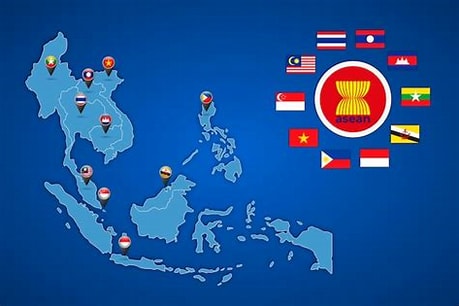
The Philippines has once again voiced its concerns over the situation in the West Philippine Sea during the latest round of negotiations aimed at finalizing the ASEAN-China Code of Conduct (COC) in the South China Sea. The talks in Manila from April 9 to 11 brought together representatives from ASEAN member states and China to address longstanding maritime disputes and tensions in the region.
The Department of Foreign Affairs (DFA) emphasized that the meeting allowed the Philippines to advocate adherence to international law, particularly the United Nations Convention on the Law of the Sea (UNCLOS) and the 2016 South China Sea Arbitral Award. The award invalidated China’s expansive claims over the South China Sea and remains a cornerstone of the Philippines’ stance on maritime sovereignty and rights.
During the discussions, the Philippines highlighted recent incidents that posed risks to its vessels and personnel and actions by other countries that infringed on its sovereignty and jurisdiction. These concerns underscore the urgency of establishing a substantive and effective COC to prevent dangerous encounters and manage disputes in the contested waters.
The negotiations tackled critical issues, including the agreement’s geographic scope, legal nature, and relationship between the proposed COC and the existing Declaration on the Conduct of Parties in the South China Sea (DOC). While progress has been slow, ASEAN and China have committed to concluding the COC within three years, aiming for a framework that promotes stability and cooperation in the region.
The Philippines reaffirmed its commitment to resolving disputes peacefully and pursuing constructive diplomatic approaches to managing differences at sea. As tensions persist, the country continues to advocate for a legally binding COC that aligns with international law and safeguards the rights of all parties involved.
The next round of negotiations is scheduled in Malaysia later this year, as ASEAN and China work toward finalizing the long-awaited agreement. The Philippines remains steadfast in its efforts to uphold its sovereignty and contribute to regional stability through diplomatic and legal means.


